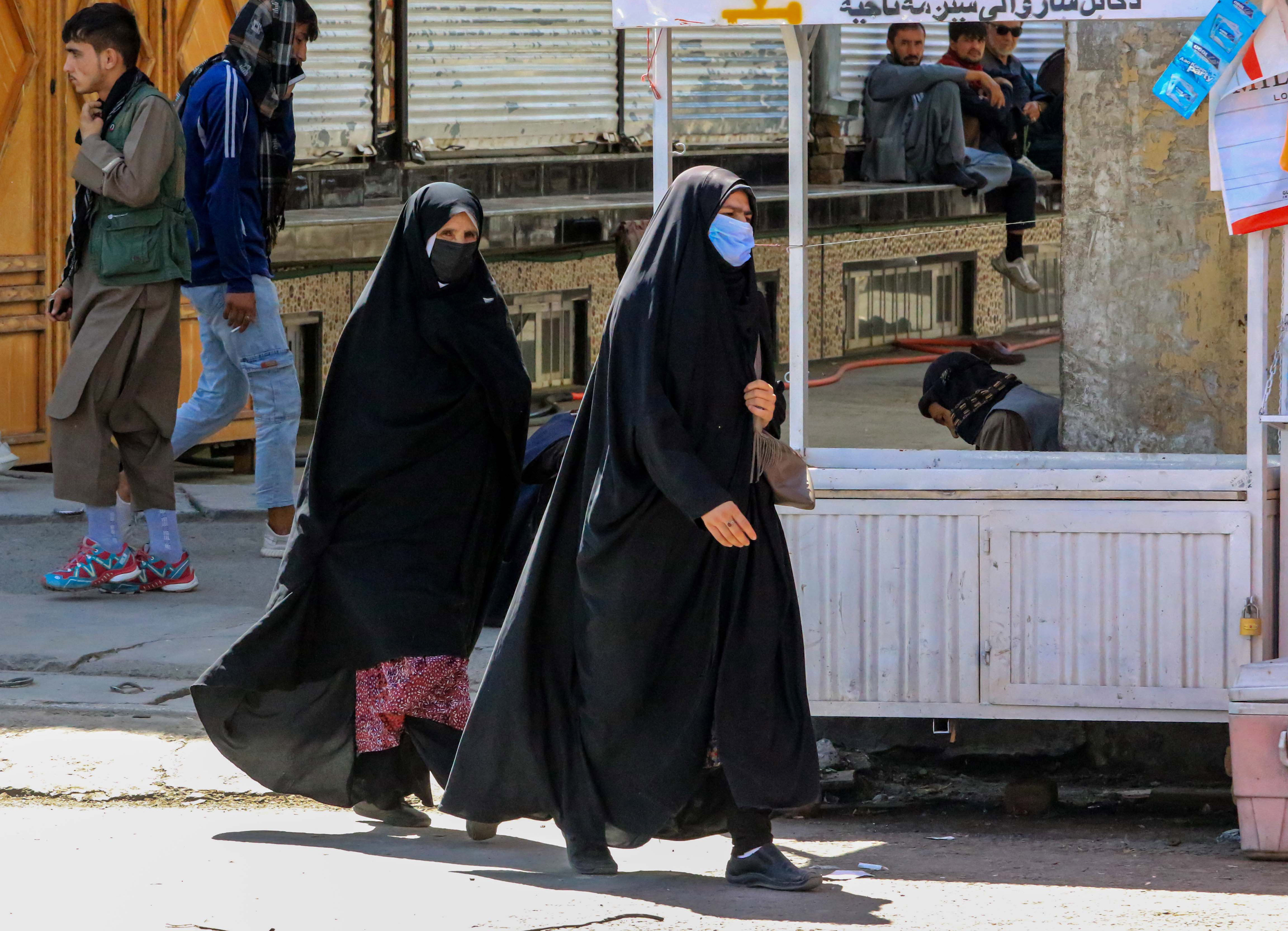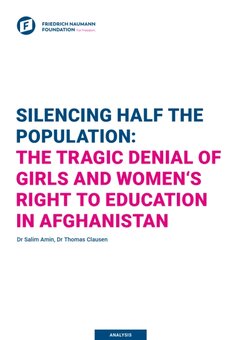Afghanistan
The Tragic Denial of Girls and Women‘s Right to Education in Afghanistan

Afgan women walk on a road on the eve of the second anniversary of taking over the government in Kabul, Afghanistan, 14 August 2023.
© picture alliance / EPA | SAMIULLAH POPAL15 August 2023 marks two years since the Taliban toppled the democratic government in Kabul and took power as a result of a political agreement in Doha city. The developments that followed not only sealed the fate of Afghanistan’s fledgling democracy but also included gross violations of human rights. As of today, the Taliban, as the de facto authorities, are committing “gender apartheid” that already marked their first reign between 1996 and 2000.
During the last two years, Afghan women have faced grave ordeals. Systematically, they have been subjected to discriminatory practices and their access to public life has been largely restricted. The leader of the Taliban, Mullah Habatullah Akhundzada, has issued more than twenty decrees regarding the status of women, stripping them of any active role in society.
A cornerstone of the Taliban’s rule is the gross violation of women’s right to education. Step by step, the access of girls and women to educational institutions has been restricted. Girls are excluded from secondary education and, since 20 December 2022, women face a total ban from higher education. Experts who follow the situation in Afghanistan, especially within the framework of the Special Procedures of the United Nations Human Rights Council, have documented systematic human rights abuses.
This paper shows that these violations take place in spite of Afghanistan’s international obligations. As a member of the international community, Afghanistan signed and ratified many international human rights conventions and treaties. Regardless of any de facto or de jure recognition by the international community, the Taliban are obliged to respect women's rights and adopt measures for their effective implementation. Evidently, the Taliban have not only failed to protect Afghan women but they have also actively violated their fundamental rights.
This paper further considers the responsibilities of the international community. First of all, the right to education is a universal human right, and the universal validity of those rights should be of essential concern to all members of the United Nations. Considering the current political climate in Afghanistan, it is extremely challenging to pressure the Taliban into enforcing human rights. But there still is an international responsibility to explore avenues for ameliorating the situation of women in Afghanistan. This duty falls especially on those countries who, following United Nations Security Council Resolution 1378, were present in the country for over twenty years.
Although the situation remains difficult and options for Western policymakers are limited, this paper makes a number of recommendations for improving the situation of Afghan women. These include utilising the possibilities that are envisaged within international law, leveraging diplomatic pressure, and providing aid to Afghan girls and women directly, for instance through supporting online universities. Finally, policymakers should take women’s rights seriously not only as an accessory to international policy but as an integral component of it.
